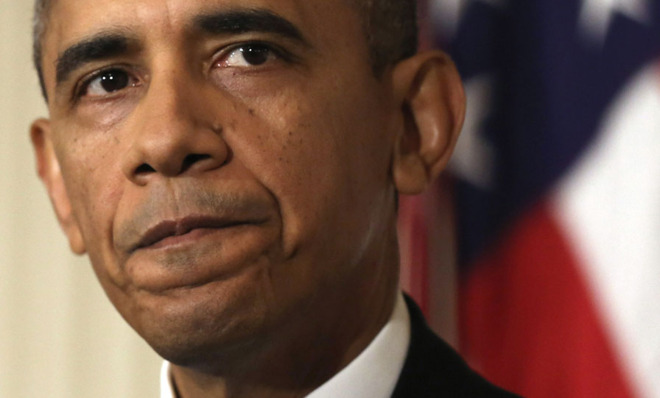Does the deficit really matter?
Are lawmakers who portray the deficit and the national debt as apocalyptic threats exaggerating?

A free daily email with the biggest news stories of the day – and the best features from TheWeek.com
You are now subscribed
Your newsletter sign-up was successful
Republicans are obsessed over the wrong deficit, said Tim Koechlin at The Huffington Post. The GOP's "misguided squabble" over spending and the federal budget deficit has distracted us from our real deficit: Jobs. Bringing our economy back to full employment "should be the very top priority of Congress and the White House." Unfortunately, even President Obama has joined the "chorus of deficit hawks" longing for "a 'grand bargain' that would get the debt and the deficit 'under control.'" But in a stagnant economy like ours, cutting spending "is like bloodletting an anemic patient." If we want to reduce the jobs deficit, the government needs to spend more — and wisely, of course. Cutting spending now would "inflict still more unnecessary pain on millions of Americans."
The truth is that "the deficit is on a sustainable path," said Dylan Matthews at the Washington Post. Thanks to the debt ceiling and fiscal cliff deals, "we've enacted about $2.75 trillion in deficit reduction measures" since 2011, when the Republicans took over the leadership of the House. One think tank estimates that we need just another $900 billion in deficit reduction over the next decade to stabilize the national debt in the long term. Lawmakers who portray the deficit as an apocalyptic threat should "stop worrying and start talking about actual problems."
Sorry, but "reining in the national debt is not an accounting fetish," said Nick Gillespie at The Daily Beast. The U.S. government is in the hole "to the tune of 100 percent of GDP" — a burden that will foist massive taxes and an inflated currency on future generations. Even Obama once recognized the peril of too much debt: On the 2008 campaign trail, he preached about breaking the "cycle of debt" and ending the "era of easy money." Yet as president, he's pushed for a budget that seeks more spending than even the Senate Democrats want — $3.8 trillion in fiscal 2014, increasing to $5.7 trillion by 2023. "This is not the work of a person interested in 'curbing spending.'" If we want future generations to "inherit a world of opportunities rather than one littered by their elders' IOUs," Congress should impose a long-range cap on our national debt. Only then can we do what must be done: "Cut spending from its projected upward path, period."
The Week
Escape your echo chamber. Get the facts behind the news, plus analysis from multiple perspectives.

Sign up for The Week's Free Newsletters
From our morning news briefing to a weekly Good News Newsletter, get the best of The Week delivered directly to your inbox.
From our morning news briefing to a weekly Good News Newsletter, get the best of The Week delivered directly to your inbox.
That will never happen unless we deal with the ballooning size of our government, said Jeffrey Dorfman at Forbes. Republicans deserve some blame for having "expanded military spending far beyond national defense." But the Democrats have essentially transformed the federal government into "an instrument of income redistribution." Seventy percent of its spending is transfer payments — "taxing or borrowing money from one person to give it to another." It's no surprise this fires up conservatives, but it's not just a matter of ideology to say we can't afford for this to go on. If we want to "ratchet down the level of partisanship and hostility on Capitol Hill," it's time to cut back on all government programs, starting with defense and entitlements. "If there is less government to fight about, there will be less fighting."
A free daily email with the biggest news stories of the day – and the best features from TheWeek.com
Sergio Hernandez is business editor of The Week's print edition. He has previously worked for The Daily, ProPublica, the Village Voice, and Gawker.
-
 The Olympic timekeepers keeping the Games on track
The Olympic timekeepers keeping the Games on trackUnder the Radar Swiss watchmaking giant Omega has been at the finish line of every Olympic Games for nearly 100 years
-
 Will increasing tensions with Iran boil over into war?
Will increasing tensions with Iran boil over into war?Today’s Big Question President Donald Trump has recently been threatening the country
-
 Corruption: The spy sheikh and the president
Corruption: The spy sheikh and the presidentFeature Trump is at the center of another scandal